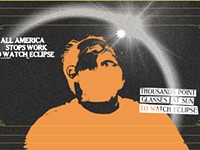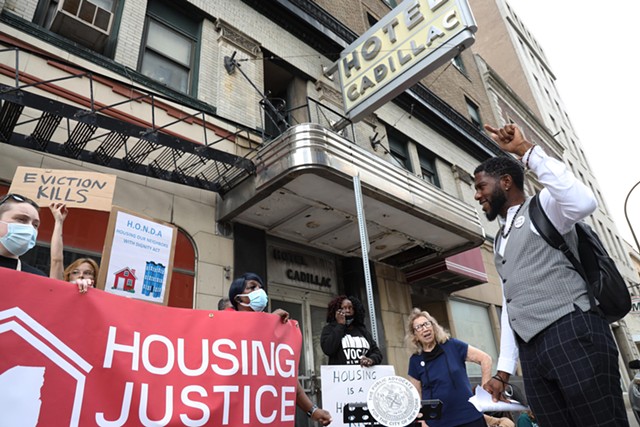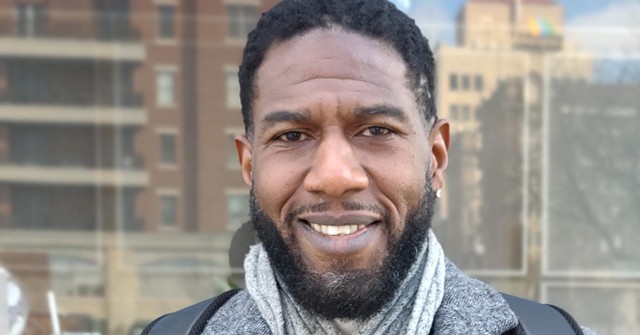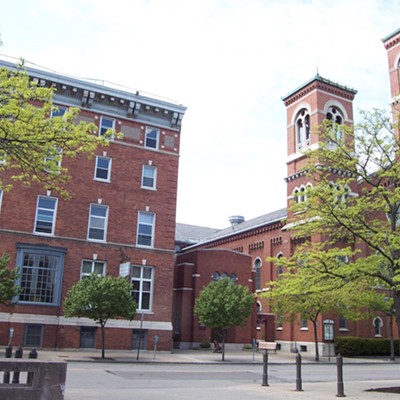[
{
"name": "500x250 Ad",
"insertPoint": "5",
"component": "15667920",
"parentWrapperClass": "",
"requiredCountToDisplay": "1"
}
]
New York City Public Advocate Jumaane Williams first challenged Gov. Kathy Hochul in 2018 in the Democratic primary for lieutenant governor.
Now, the left-leaning Williams is mounting another Democratic primary against Hochul, this time with the endorsement of the Working Families Party.
Williams has been a key figure in the party since he was first elected to the New York City Council in 2009. Williams ran on a platform of criminal justice reform, affordable housing, and weeding out corruption. It’s a mainstay series of policy positions that have come to embody the progressive party which is increasingly becoming a force in state politics.
In a visit to Rochester on Wednesday, Williams sat down with CITY to discuss his campaign and the issues he sees affecting Rochester and the state.
The following transcript has been edited for style, clarity, and brevity.
CITY: Where do you think the state is at right now in regard to the past two administrations and what you think needs to change?
You know, I think so many of the issues that people are dealing with in Rochester, and all over the state, they were dealing with well before the pandemic. I was very vocal about the lack of leadership from Albany, particularly the governor, before the pandemic. We're at a moment in time where we need bold, courageous shifts, New Deal kinds of shifts, in order to get not just to where we were, but where we always needed to be.
Unfortunately, I haven't seen that in this government. I've actually seen a continuation of policies that are harmful to folks in Rochester. Even scarier are things like trying to bring back prison labor. That one blew my mind.
(Hochul recently introduced a “Jail to Jobs” initiative, which she cast as an effort to improve incarcerated people’s re-entry into the workforce.)
What are some of the other policies you think are doing harm to the state right now?
When you look at the housing situation, that's only gotten worse. When you look at what the governor has presented, the plan is woefully inadequate. When you see an eviction moratorium end, which had to end at some point, but when you see it in the middle of winter, in the middle of the omicron surge, without any vocal support for good-cause eviction protections, without any plan to help small owners, we're dealing with foreclosure in a real way. We just don't have what it takes right now.
One of the big challenges is being able to fund all of these things. It’s really important. To hear the governor placating to the wealthy donors and saying, literally, no new taxes. It hurts because no millionaires and billionaires have left New York State. Her own budget director has confirmed that.
(In January, following Hochul’s budget address, state Budget Director Robert Mujica said the administration has not seen any evidence of wealthy New Yorkers leaving the state due to high taxes).
We've lost tens of thousands of New Yorkers who can't afford to live, who can't afford healthcare. And that no tax-line is a Republican line. It's meant to scare people who will never be impacted by the type of revenue raising that we're talking about in the first place. That type of revenue is what we need to do the things that I believe we have to do.
So we have to talk to the folks who got wealthier after the pandemic and help the working class and working families of New York who are doing much worse.
We can have that conversation in terms of, “What is your civic responsibility?” We all have to do what we can. Again, it’s just a dereliction of duty in my opinion.
RELATED: No Consensus on Reasons for Exodus from New York
We have a bill in our City Council that's going to vote this month on good-cause eviction protections. Places like Albany and New Paltz have also moved forward on that kind of thing, but it doesn't seem to have very much momentum at the state level right now.
Good-cause is a remarkably baseline protection. We, unfortunately, allow people to pit tenants against particularly small homeowners. There's no reason to do that, we need to protect both of them.
There’s a lot of misinformation purposely being put out by landlords, that they won’t be able to evict tenants at all. I understand it on a different level. I was a community organizer. I remember when tenants would come to me and ask for repairs, and I would say, “Look, you have some kind of tenant protection.”
It's a basic minimum. In my experience, good-cause actually helps folks activate their other rights, which aren’t really there if you're constantly afraid of being evicted. We've seen now that parts of the state are the most costly in the entire nation, and that's happening under this governor.
How can we inspire more development in places like Rochester, Buffalo, or Syracuse that were industry centers 50 years ago in a way that is not focused on giving tax breaks to large developers?
We’ve seen a lot of talk about the Buffalo Billion, but many people didn't realize that kind of stuff has been happening all over the state. Unfortunately, tax programs like 421-a and 485-a have not been helpful and they've been big gifts to developers.
What we need to be doing is incentivizing income-targeted, deeply affordable housing. I think we're gonna have to start separating out some of the development and ownership. But we also don't do a good job of incentivizing small businesses. We've seen a lot of incentivizing big companies to come in, and they get a lot of tax breaks. But I've been pushing this for a long time. Can't we give some of those tax breaks to some of the downtown Rochester small businesses, so they can hire this many people, and they can expand?
No one's given me a good reason. So that's something I definitely want to push to help our small business owners. I was a small business owner myself, so I understand the difficulties and struggles, and I would have loved to have some of the tax breaks.
RELATED: Jumaane Williams speaks to Connection's Evan Dawson on his campaign for governor
Rochester had a record year for shootings and for homicides in 2021. It’s left people scrambling for simple solutions for what is likely a very nuanced and complex problem. What do you think needs to change on the level of public safety?
When I look at gun violence, I’m looking at the supply and the demand as two separate issues. The supply is the guns coming in from different parts of the state, but mostly coming up from down south. Law enforcement definitely focuses on the guns coming in.
But the second part is the demand, and treating that like a public health crisis. What are the issues that are causing people to choose this form of communication? Choosing permanent solutions for very temporary problems in their lives. We can do a lot of work there.
In New York City, we're actually still one of the safest cities in the country. We did that by funding community based programs that supplemented public safety. This just can't be a police issue.
Officers have a very tough job. We want to support them. We want policing to happen with transparency and accountability. We also want to support them by not having them do all the jobs that other people should be doing. Look at mental health for instance. Our police departments, all over the state and here in Rochester, can have access to almost unlimited overtime. But our Department of Mental Health does not have access to the same amount of resources. Why not?
It's one thing if you have an acute problem, and you have to send police officers to make arrests. But what are you doing after that? Because you're going to be back in a few years if you haven't changed anything in that environment. You put money into job training, mental health services, people to come in and do interruption. Treating the demand is like a public health issue.
That takes time, that takes resources, that takes dedication, and it is a long term solution. So you do need police officers, particularly as an acute solution for acute situations. But we can't keep giving an acute solution for complex issues. That's where we've gone wrong for way too long.
We actually know what works. We just need the courage to actually resource it and structuralize it in a very real way and give it time to work.
People have been asking for the same things. They’re asking for a good school system for their kids. They have been asking for more access to healthcare and health services. They've been asking for more than just potato chips to feed their children. They've been asking for a job so they can pay for what they need.
And actually, I'll say these are not excuses. You can't excuse people shooting up the community. There has to be consequences for their actions. But we can't be spending all of our resources, all of the planning, on the consequences and none on preventing this from happening.
The final thing I wanted to touch on is cannabis. I want to get an idea of, as defined in the legalization bill, how the state is supposed to ensure that everyone has a seat at the table in a potentially multibillion dollar industry.
I am concerned about that. Everything I've seen and heard leads me to believe that equity is not going to happen. We’re, as a state, trying to learn from some of the mistakes made by states like Colorado.
The people I know who are chomping at the bit are primarily white firms, while Black and brown folks today are trying to figure out how to navigate the system. We have to account for the inequity that exists at the beginning.
One of the provisions in the law would prevent access to finance for people who had any arrest or criminal involvement from being able to enter the businesses, which is just absolutely ridiculous, absurd.
If we're not careful, the very communities that felt the brunt of criminalization are going to be left out of access to funding. We have to be very clear that there has to be money that is earmarked to communities and organizations that represent these communities that help people navigate the system that helps give them seed money.
It's unfair to start to open this up without addressing the decades-long infrastructural inequities that have occurred.
Gino Fanelli is a CITY staff writer. He can be reached at (585) 775-9692 or [email protected].
Now, the left-leaning Williams is mounting another Democratic primary against Hochul, this time with the endorsement of the Working Families Party.
Williams has been a key figure in the party since he was first elected to the New York City Council in 2009. Williams ran on a platform of criminal justice reform, affordable housing, and weeding out corruption. It’s a mainstay series of policy positions that have come to embody the progressive party which is increasingly becoming a force in state politics.
In a visit to Rochester on Wednesday, Williams sat down with CITY to discuss his campaign and the issues he sees affecting Rochester and the state.
The following transcript has been edited for style, clarity, and brevity.
CITY: Where do you think the state is at right now in regard to the past two administrations and what you think needs to change?
You know, I think so many of the issues that people are dealing with in Rochester, and all over the state, they were dealing with well before the pandemic. I was very vocal about the lack of leadership from Albany, particularly the governor, before the pandemic. We're at a moment in time where we need bold, courageous shifts, New Deal kinds of shifts, in order to get not just to where we were, but where we always needed to be.
Unfortunately, I haven't seen that in this government. I've actually seen a continuation of policies that are harmful to folks in Rochester. Even scarier are things like trying to bring back prison labor. That one blew my mind.
(Hochul recently introduced a “Jail to Jobs” initiative, which she cast as an effort to improve incarcerated people’s re-entry into the workforce.)
What are some of the other policies you think are doing harm to the state right now?
When you look at the housing situation, that's only gotten worse. When you look at what the governor has presented, the plan is woefully inadequate. When you see an eviction moratorium end, which had to end at some point, but when you see it in the middle of winter, in the middle of the omicron surge, without any vocal support for good-cause eviction protections, without any plan to help small owners, we're dealing with foreclosure in a real way. We just don't have what it takes right now.
One of the big challenges is being able to fund all of these things. It’s really important. To hear the governor placating to the wealthy donors and saying, literally, no new taxes. It hurts because no millionaires and billionaires have left New York State. Her own budget director has confirmed that.
(In January, following Hochul’s budget address, state Budget Director Robert Mujica said the administration has not seen any evidence of wealthy New Yorkers leaving the state due to high taxes).
We've lost tens of thousands of New Yorkers who can't afford to live, who can't afford healthcare. And that no tax-line is a Republican line. It's meant to scare people who will never be impacted by the type of revenue raising that we're talking about in the first place. That type of revenue is what we need to do the things that I believe we have to do.
So we have to talk to the folks who got wealthier after the pandemic and help the working class and working families of New York who are doing much worse.
We can have that conversation in terms of, “What is your civic responsibility?” We all have to do what we can. Again, it’s just a dereliction of duty in my opinion.
RELATED: No Consensus on Reasons for Exodus from New York
We have a bill in our City Council that's going to vote this month on good-cause eviction protections. Places like Albany and New Paltz have also moved forward on that kind of thing, but it doesn't seem to have very much momentum at the state level right now.
Good-cause is a remarkably baseline protection. We, unfortunately, allow people to pit tenants against particularly small homeowners. There's no reason to do that, we need to protect both of them.
There’s a lot of misinformation purposely being put out by landlords, that they won’t be able to evict tenants at all. I understand it on a different level. I was a community organizer. I remember when tenants would come to me and ask for repairs, and I would say, “Look, you have some kind of tenant protection.”
It's a basic minimum. In my experience, good-cause actually helps folks activate their other rights, which aren’t really there if you're constantly afraid of being evicted. We've seen now that parts of the state are the most costly in the entire nation, and that's happening under this governor.
How can we inspire more development in places like Rochester, Buffalo, or Syracuse that were industry centers 50 years ago in a way that is not focused on giving tax breaks to large developers?
We’ve seen a lot of talk about the Buffalo Billion, but many people didn't realize that kind of stuff has been happening all over the state. Unfortunately, tax programs like 421-a and 485-a have not been helpful and they've been big gifts to developers.
What we need to be doing is incentivizing income-targeted, deeply affordable housing. I think we're gonna have to start separating out some of the development and ownership. But we also don't do a good job of incentivizing small businesses. We've seen a lot of incentivizing big companies to come in, and they get a lot of tax breaks. But I've been pushing this for a long time. Can't we give some of those tax breaks to some of the downtown Rochester small businesses, so they can hire this many people, and they can expand?
No one's given me a good reason. So that's something I definitely want to push to help our small business owners. I was a small business owner myself, so I understand the difficulties and struggles, and I would have loved to have some of the tax breaks.
RELATED: Jumaane Williams speaks to Connection's Evan Dawson on his campaign for governor
Rochester had a record year for shootings and for homicides in 2021. It’s left people scrambling for simple solutions for what is likely a very nuanced and complex problem. What do you think needs to change on the level of public safety?
When I look at gun violence, I’m looking at the supply and the demand as two separate issues. The supply is the guns coming in from different parts of the state, but mostly coming up from down south. Law enforcement definitely focuses on the guns coming in.
But the second part is the demand, and treating that like a public health crisis. What are the issues that are causing people to choose this form of communication? Choosing permanent solutions for very temporary problems in their lives. We can do a lot of work there.
In New York City, we're actually still one of the safest cities in the country. We did that by funding community based programs that supplemented public safety. This just can't be a police issue.
Officers have a very tough job. We want to support them. We want policing to happen with transparency and accountability. We also want to support them by not having them do all the jobs that other people should be doing. Look at mental health for instance. Our police departments, all over the state and here in Rochester, can have access to almost unlimited overtime. But our Department of Mental Health does not have access to the same amount of resources. Why not?
It's one thing if you have an acute problem, and you have to send police officers to make arrests. But what are you doing after that? Because you're going to be back in a few years if you haven't changed anything in that environment. You put money into job training, mental health services, people to come in and do interruption. Treating the demand is like a public health issue.
That takes time, that takes resources, that takes dedication, and it is a long term solution. So you do need police officers, particularly as an acute solution for acute situations. But we can't keep giving an acute solution for complex issues. That's where we've gone wrong for way too long.
We actually know what works. We just need the courage to actually resource it and structuralize it in a very real way and give it time to work.
People have been asking for the same things. They’re asking for a good school system for their kids. They have been asking for more access to healthcare and health services. They've been asking for more than just potato chips to feed their children. They've been asking for a job so they can pay for what they need.
And actually, I'll say these are not excuses. You can't excuse people shooting up the community. There has to be consequences for their actions. But we can't be spending all of our resources, all of the planning, on the consequences and none on preventing this from happening.
The final thing I wanted to touch on is cannabis. I want to get an idea of, as defined in the legalization bill, how the state is supposed to ensure that everyone has a seat at the table in a potentially multibillion dollar industry.
I am concerned about that. Everything I've seen and heard leads me to believe that equity is not going to happen. We’re, as a state, trying to learn from some of the mistakes made by states like Colorado.
The people I know who are chomping at the bit are primarily white firms, while Black and brown folks today are trying to figure out how to navigate the system. We have to account for the inequity that exists at the beginning.
One of the provisions in the law would prevent access to finance for people who had any arrest or criminal involvement from being able to enter the businesses, which is just absolutely ridiculous, absurd.
If we're not careful, the very communities that felt the brunt of criminalization are going to be left out of access to funding. We have to be very clear that there has to be money that is earmarked to communities and organizations that represent these communities that help people navigate the system that helps give them seed money.
It's unfair to start to open this up without addressing the decades-long infrastructural inequities that have occurred.
Gino Fanelli is a CITY staff writer. He can be reached at (585) 775-9692 or [email protected].
Latest in News
More by Gino Fanelli
-

DeWolf Brewing Company set to open in Victor
Apr 26, 2024 -

These small cannabis farmers say New York's legal weed rollout is ruining their lives
Mar 21, 2024 -

Man shakes fist at sun
Mar 15, 2024 - More »








